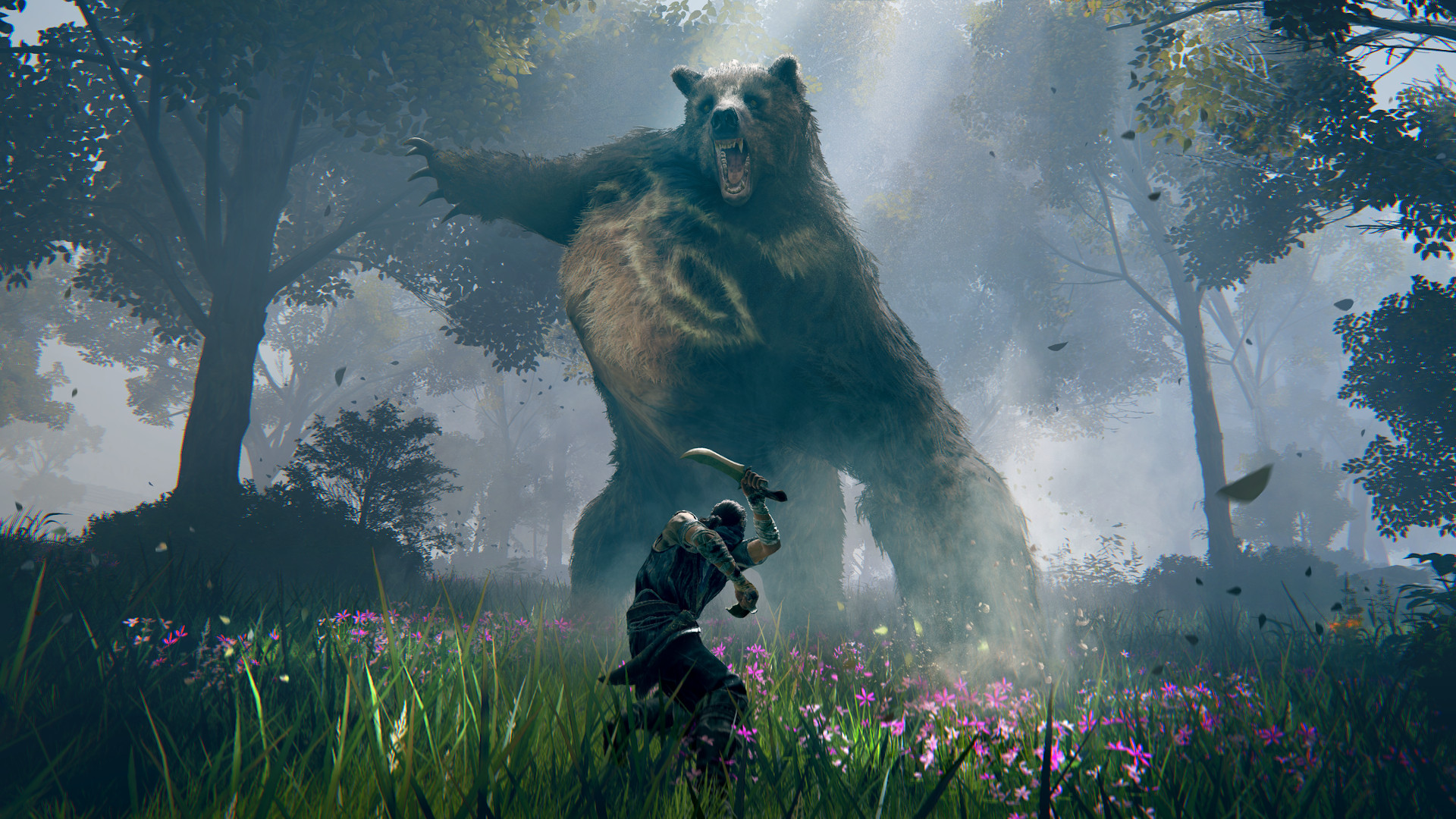Beyond the Horizon: The Enduring Allure of Open-World Adventure Games
For decades, video games have captivated us with their immersive worlds and engaging narratives. But within the vast landscape of gaming, one genre stands out for its sheer ambition and freedom: the open-world adventure game. These games don’t just offer a linear path; they present a sprawling, interactive world ripe for exploration, discovery, and self-driven storytelling. From the pixelated landscapes of early RPGs to the breathtaking fidelity of modern masterpieces, open-world adventure games have consistently pushed the boundaries of what’s possible, capturing our imaginations and redefining what it means to truly "play."
The Essence of Freedom: Defining the Open-World Experience
At its core, the open-world adventure game promises freedom. This freedom manifests in several key aspects:
- Non-Linear Exploration: Unlike linear games that guide players along a predetermined path, open-world games allow players to roam freely, exploring the map at their own pace. This exploration is often rewarded with hidden locations, side quests, unique encounters, and a deeper understanding of the game’s lore.
- Player Agency: Open-world games empower players to make meaningful choices that impact the narrative and the world around them. These choices can range from simple dialogue options to significant decisions that alter the fate of characters and factions.
- Emergent Gameplay: The combination of a vast world and player agency often leads to emergent gameplay, where unexpected and unscripted events occur as a result of the player’s actions and the game’s dynamic systems. This can involve stumbling upon a random encounter, exploiting a game mechanic in a creative way, or even accidentally triggering a chain of events that drastically alters the game’s narrative.
- Persistent World: Open-world games typically feature a persistent world that continues to exist and evolve even when the player is not actively engaged. This means that actions have consequences, and the world remembers the player’s interactions.
These core elements combine to create a uniquely immersive and engaging experience. Players are not simply following a story; they are actively participating in it, shaping their own narrative and forging their own legend within the game world.
A History of Exploration: Tracing the Evolution of the Genre
The roots of the open-world adventure game can be traced back to the early days of computer RPGs. Games like Akalabeth: World of Doom (1979) and Ultima (1981) offered rudimentary but revolutionary open worlds where players could explore dungeons, fight monsters, and complete quests. However, these early titles were limited by technological constraints, featuring simple graphics and limited interaction.
The 1980s saw the emergence of more sophisticated open-world games, such as The Legend of Zelda (1986) for the NES. Zelda established many of the conventions that would define the genre, including a large, interconnected world, exploration-based gameplay, and a focus on puzzles and combat. The game’s non-linear structure and sense of discovery were groundbreaking for their time.
The advent of 3D graphics in the 1990s revolutionized the open-world genre. Games like The Elder Scrolls: Arena (1994) and Daggerfall (1996) offered vast, fully 3D worlds that players could explore from a first-person perspective. These games were ambitious in scope, featuring hundreds of quests, intricate character customization, and complex social systems.
The early 2000s witnessed the rise of the sandbox open-world game, exemplified by Grand Theft Auto III (2001). GTA III introduced a level of freedom and interactivity never before seen in a video game, allowing players to explore a sprawling urban environment, steal cars, engage in criminal activities, and complete missions at their own pace. The game’s mature themes and open-ended gameplay sparked controversy but also cemented its place as a landmark title in the history of the genre.
The late 2000s and early 2010s saw the release of several critically acclaimed open-world adventure games that further refined the genre. The Elder Scrolls IV: Oblivion (2006) and The Elder Scrolls V: Skyrim (2011) offered richly detailed fantasy worlds filled with compelling characters, engaging quests, and a vast array of skills and abilities to master. Red Dead Redemption (2010) transported players to the American West, offering a gritty and immersive portrayal of frontier life. Assassin’s Creed II (2009) blended historical fiction with open-world gameplay, allowing players to explore Renaissance Italy as a master assassin.
Modern Marvels: The State of Open-World Adventure Games Today
Today, the open-world adventure genre is thriving, with developers pushing the boundaries of technology and creativity to create ever more immersive and engaging experiences. Games like The Witcher 3: Wild Hunt (2015) have raised the bar for storytelling and character development, offering a sprawling world filled with memorable characters, morally ambiguous choices, and a compelling narrative that explores complex themes. Breath of the Wild (2017) revolutionized the Zelda franchise with its open-world design, allowing players to explore Hyrule with unprecedented freedom and creativity. Red Dead Redemption 2 (2018) set a new standard for realism and detail in open-world games, offering a meticulously crafted world filled with immersive gameplay and a poignant story. Elden Ring (2022) brought the challenging combat and intricate world design of FromSoftware’s Souls games to an open-world setting, creating a unique and unforgettable experience.
The Future of Open-World Games: Innovation and Evolution
The future of open-world adventure games is bright, with several exciting trends shaping the genre’s evolution:
- Procedural Generation: Procedural generation techniques are being used to create larger and more diverse open worlds, reducing the amount of manual labor required to design environments and populate them with content. This allows developers to focus on creating more engaging gameplay and compelling narratives.
- AI and Dynamic Systems: Advancements in artificial intelligence are leading to more dynamic and reactive game worlds. NPCs are becoming more intelligent and responsive, and the environment itself is becoming more dynamic, with weather patterns, wildlife behavior, and even political events impacting the gameplay experience.
- Multiplayer Integration: Many open-world games are incorporating multiplayer elements, allowing players to explore the world together, collaborate on quests, and compete in PvP activities. This adds a new layer of social interaction and emergent gameplay to the open-world experience.
- Enhanced Realism: Developers are constantly striving to create more realistic and immersive open worlds, using advanced graphics technology, physics simulations, and sound design to bring their worlds to life. This includes realistic weather systems, detailed environments, and believable character animations.
- Narrative Depth: Open-world games are increasingly focusing on delivering compelling narratives and engaging characters. Developers are experimenting with different storytelling techniques, such as branching narratives, emergent storytelling, and environmental storytelling, to create more meaningful and memorable experiences.
The Enduring Appeal: Why We Love Open-World Adventures
The enduring appeal of open-world adventure games lies in their ability to transport us to another world, to empower us to make our own choices, and to forge our own legends. They offer a sense of freedom and discovery that is unmatched by other genres, allowing us to explore vast landscapes, uncover hidden secrets, and interact with a rich tapestry of characters and cultures.
In a world that often feels constrained and predetermined, open-world adventure games offer a liberating escape. They remind us that we are capable of anything, that we can explore the unknown, and that we can shape our own destiny. As long as there are stories to be told and worlds to be explored, the open-world adventure game will continue to captivate our imaginations and redefine the boundaries of interactive entertainment. They are more than just games; they are portals to other worlds, opportunities for self-discovery, and a testament to the power of human imagination.


